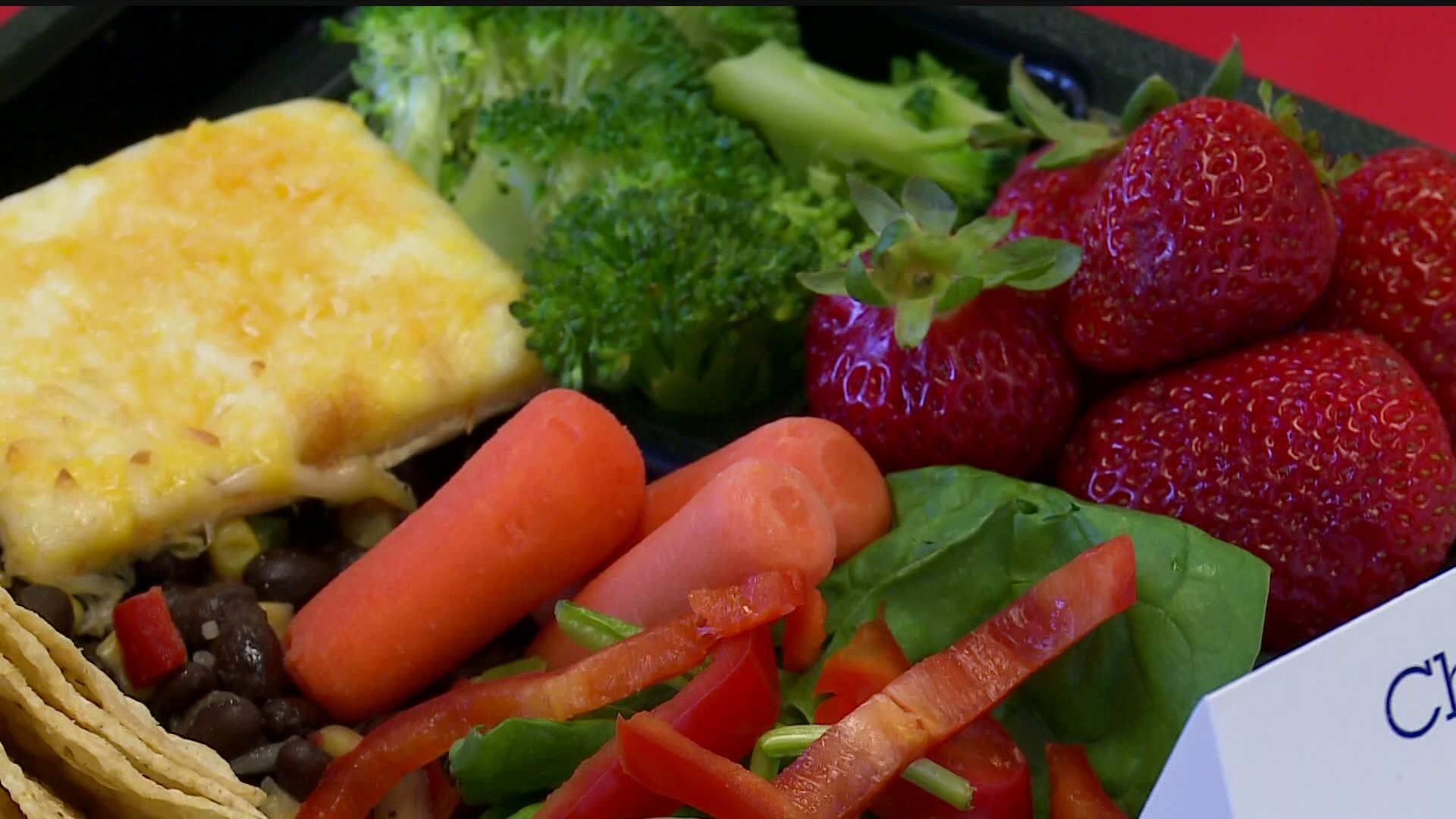MINNEAPOLIS, Minnesota — Federal funding is set to expire next month for a program that provided free school meals to all students in Minnesota, regardless of income.
In response to the pandemic, all K-12 students in Minnesota have had the option for free breakfast and lunch for the past two school years.
Now the Hunger-Free Schools campaign, a coalition led by Hunger Solutions Minnesota and Blue Cross and Blue Shield of Minnesota, is advocating to make the change permanent.
According to a recent poll by the campaign, the idea has bipartisan support with 62% of Minnesotans in favor of the state permanently offering school meals at no charge to all students.
"With food insecurity on the rise and with temporary federal aid set to expire at the end of this school year, we launched the campaign just recognizing that now is the time that we need the legislature to act and to make sure that we have a path forward to continue providing school meals to all children who need them in Minnesota," said Leah Gardner, policy director for Hunger Solutions Minnesota.
The campaign's poll found that 76% of respondents believe local schools should play a greater role in helping all children have access to healthy food during the school day.
"There is a pretty rigid and low income requirement for families to qualify for free and reduced priced meals," Gardner said. "In fact, one in four food-insecure families don't qualify for free and reduced-priced meals."
Governor Tim Walz proposed permanent funding for free school meals in his budget. It would cost about $185 million in the first year to cover breakfast and lunch for about 900,000 students in the state.
The House and Senate education committees are currently coming together to discuss what the final budget will look like but Gardner said it is seeming unlikely that funding will come through this legislative session.
She is more hopeful lawmakers will support fully funding the Community Eligibility Provision (CEP) that allows high-poverty schools and districts to offer free breakfast and lunch to all students.
Gardner called it a "critical first step" in eventually ensuring all students have access to free school meals.
One in six children in Minnesota is food insecure.
"It does go even far beyond just a learning capability. Obviously, if kids are hungry they can't focus and can't learn to their fullest potential but the health aspects of that are also pretty profound," said Dr. Gigi Chawla, vice president and chief of general pediatrics at Children's Minnesota. "If kids are not focusing, then it certainly impacts the health system as well from a testing and academic potential standpoint.
Children's Minnesota is part of the Hunger-Free Schools campaign coalition.
"When they're hungry, they're certainly not able to self regulate. They can get into trouble; they're really irritable; they don't make good friendships; they can be on the outs with other kids and that further can perpetuate things like mental health concerns," Dr. Chawla said.
According to the campaign's poll, 84% of Minnesotans believe that free school meals positively impact childhood hunger
You can find more information on Hunger-Free Schools Minnesota, here.
Watch more local news:
Watch the latest local news from the Twin Cities in our YouTube playlist:

